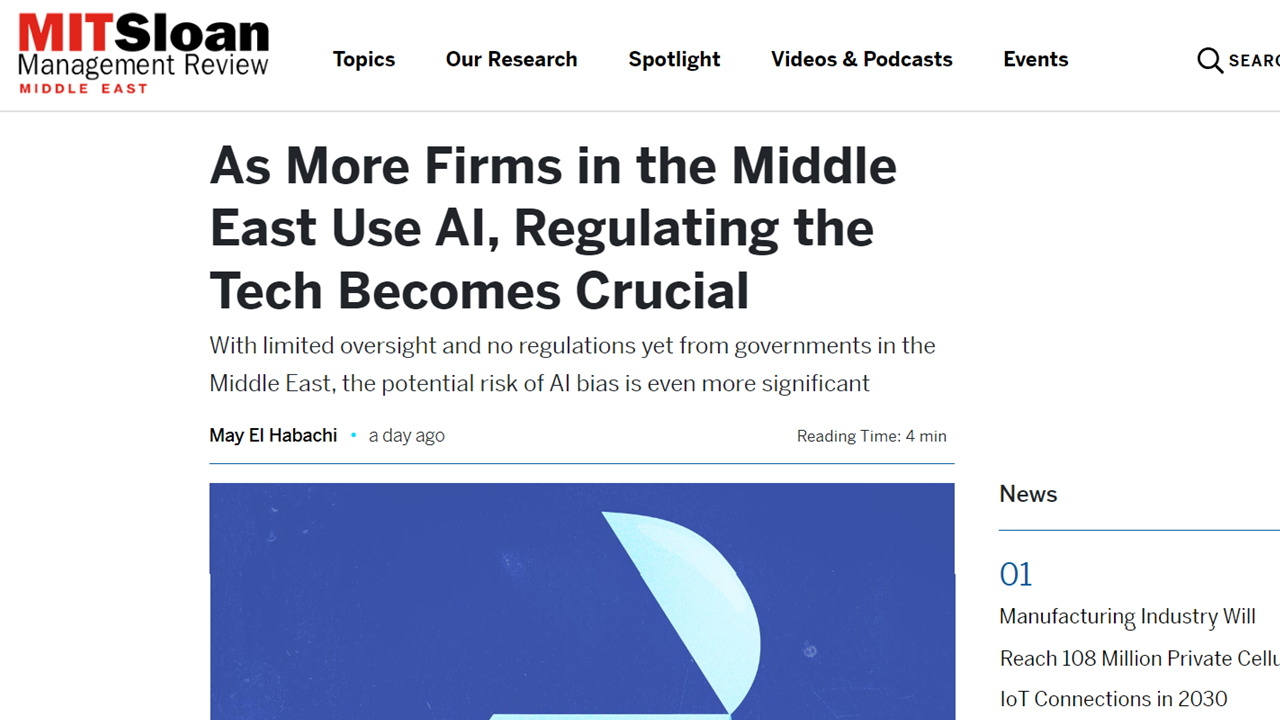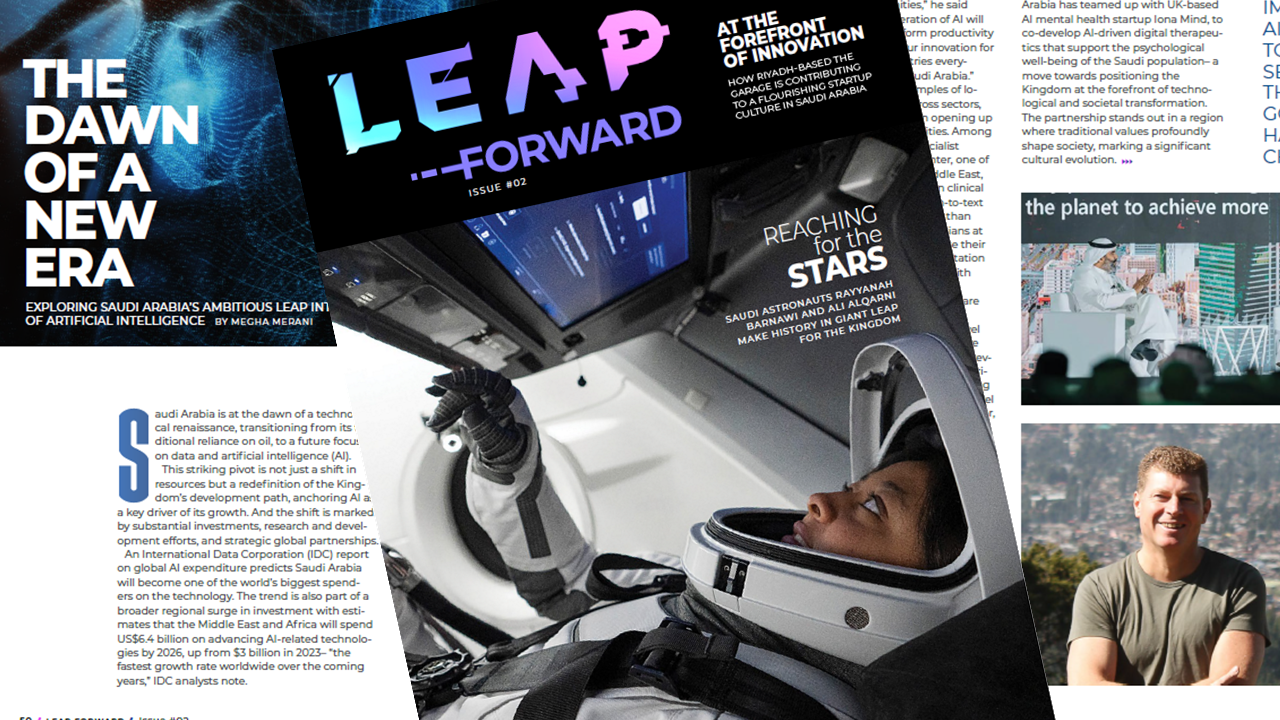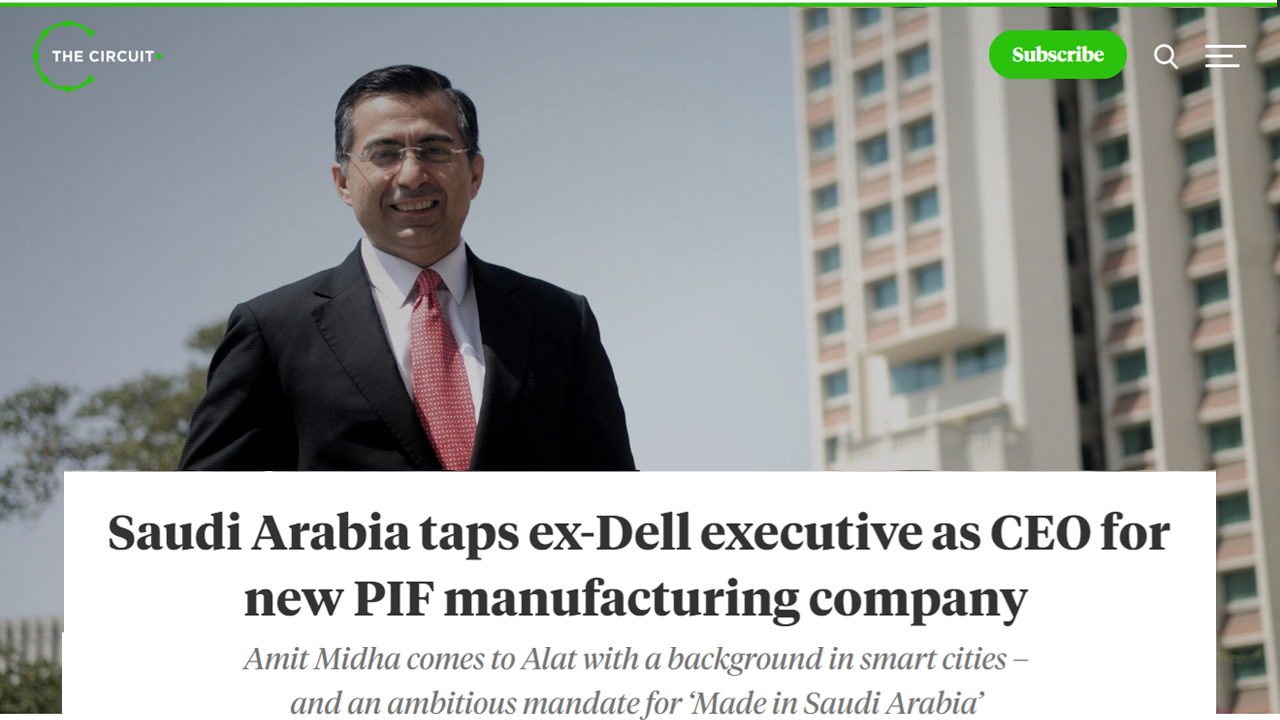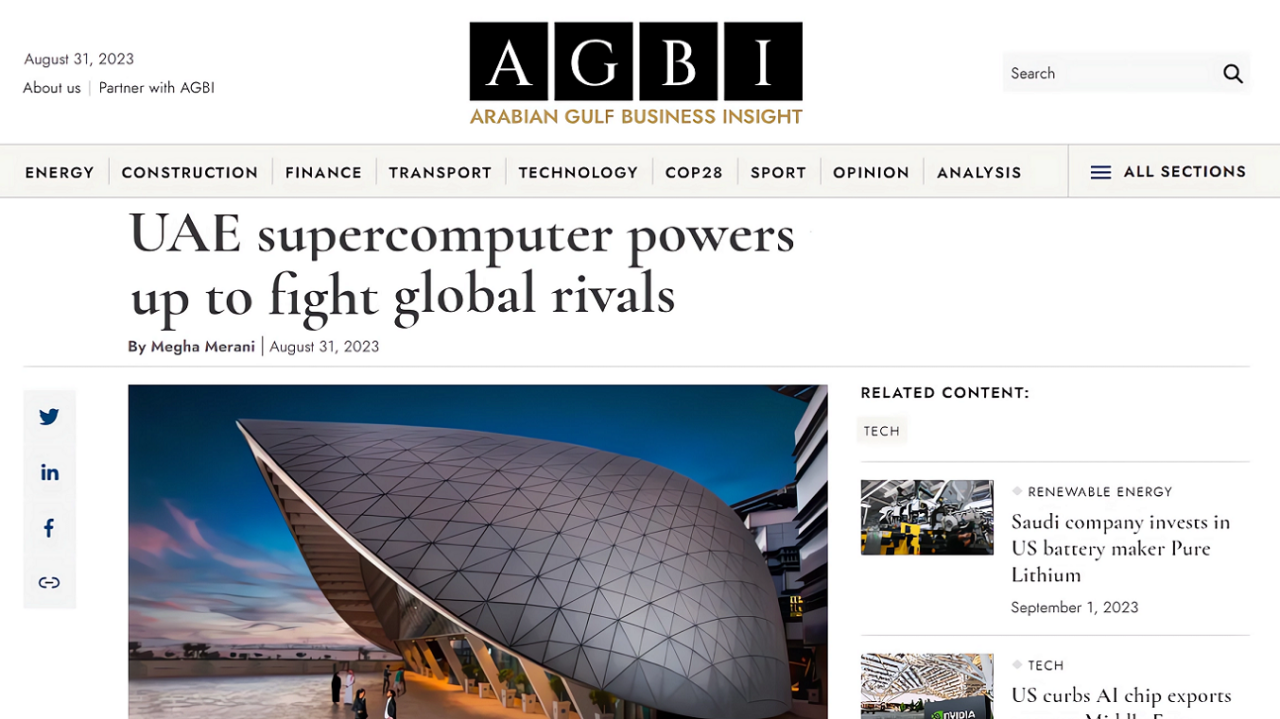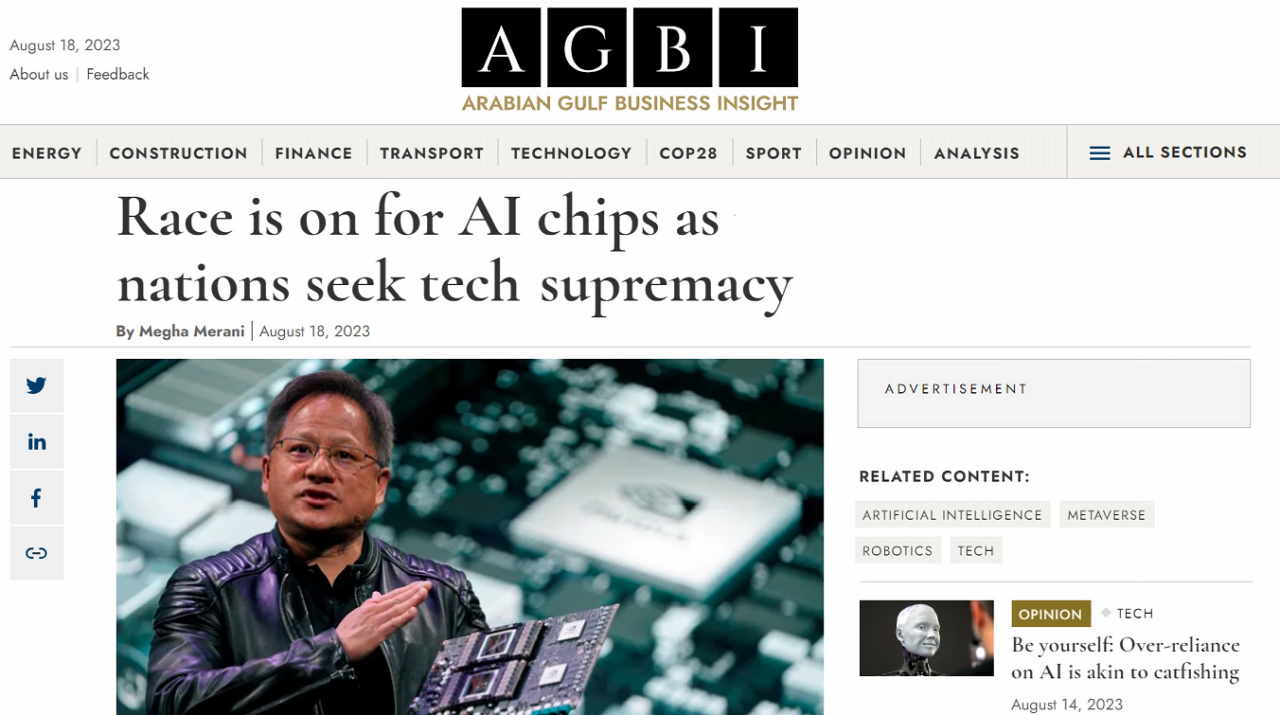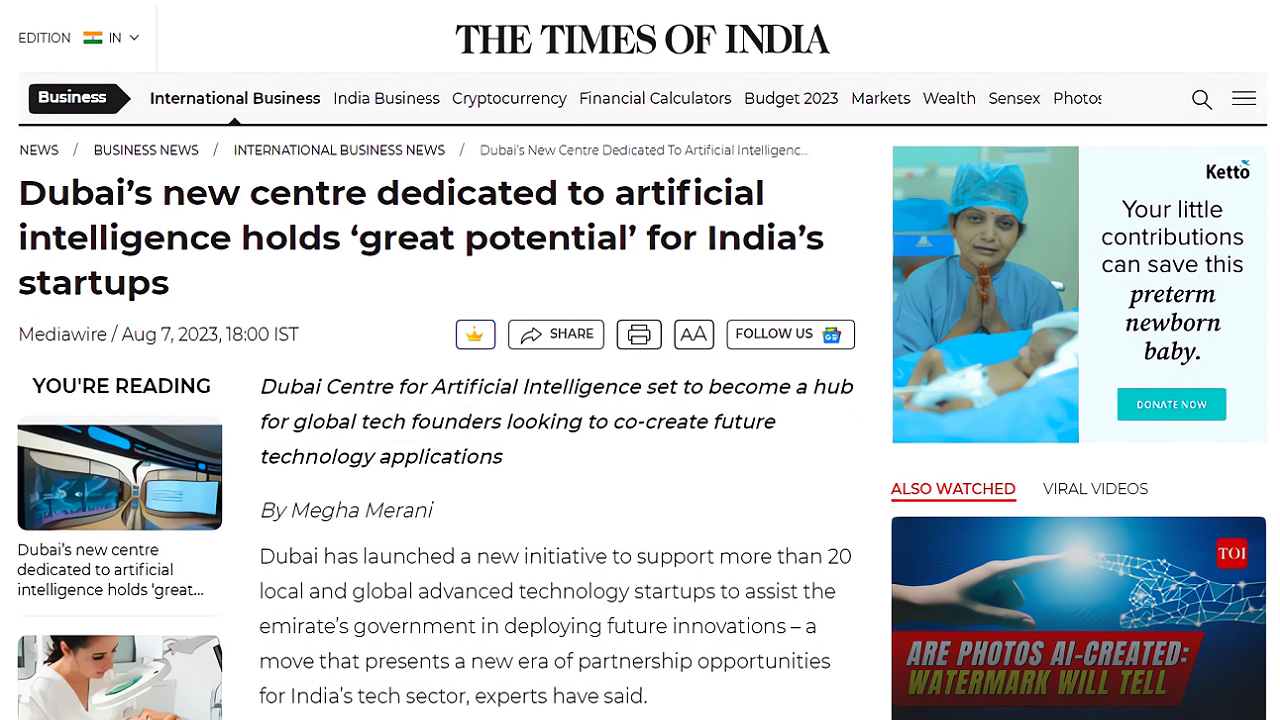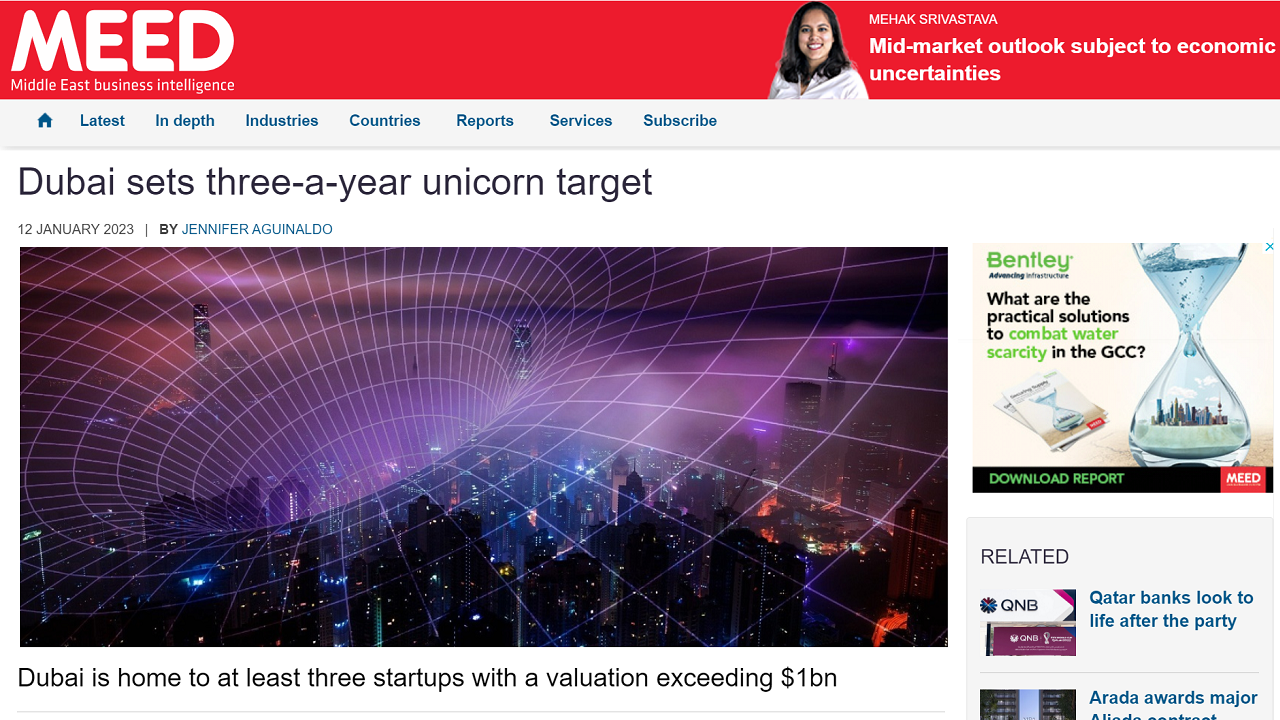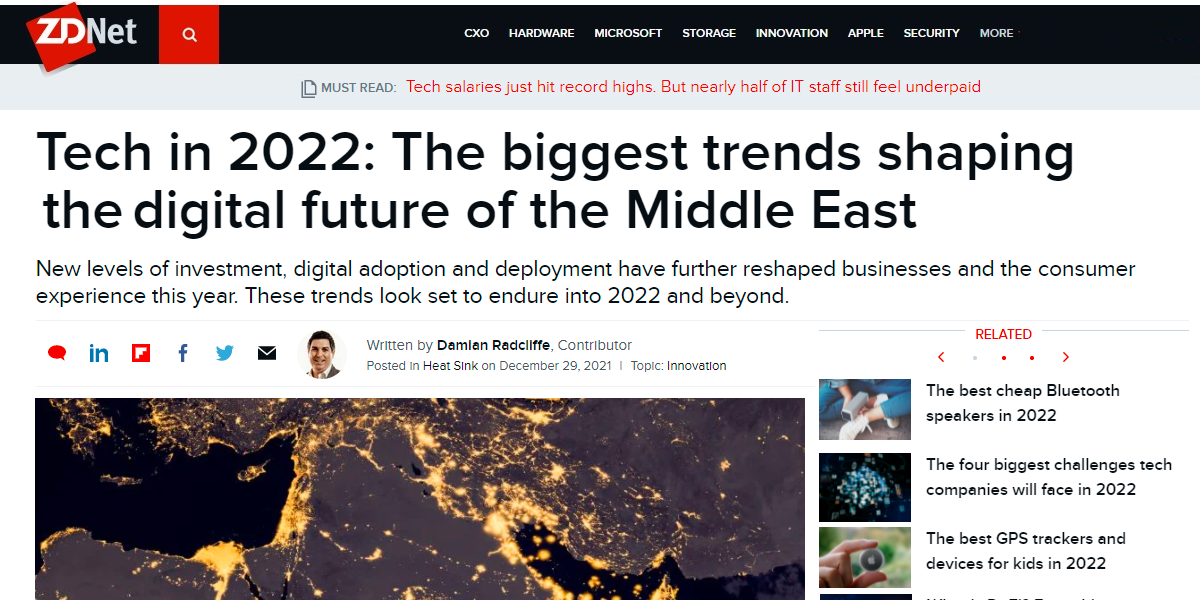The Middle East region has limited oversight and no real regulation for AI, however the technology’s influence is growing fast is already having a growing impact in recruitment, HR, banking, healthcare and security.
The fast-growing role of artificial intelligence is creating a growing need for Middle East AI regulation and governance. The influence of AI technologies is growing fast and can already impact who gets a job, who is eligible for a loan, and even what kind of medical treatment a patient receives.
MIT Sloan Management Review Middle East asked me to comment on the region’s AI policymaking related to ethics and governance, and also how businesses in the region are dealing with these issues.
Ethics, governance and responsible AI has definitely been added to government agendas during the past few years, as countries in the Middle East strive to embrace AI effectively and take their place in the global AI ecosystem. As a result, there are an increasing number of guidelines and policy frameworks developed by government departments, regulators, and public authorities in the region.
The Middle East is certainly watching the progress of the EU AI Act, and we expect to see AI regulation come into the Middle East. I think, as with the GDPR Act, it inspired more data protection laws worldwide and continues to do so. And so, that’s a role that the EU AI Act might play.
The question is when will AI governance policies make it into legislation. The recent passing of the EU AI Act may prompt some countries to being introducing legislation, but the truth is that no one really knows when the EU AI Act will come into effect and what revisions may be made before that happens.
However, in my view – due to the speed at which AI is accelerating, the sheer volume of use cases and its far-reaching impact – sitting back and waiting for government regulation should not be an option. Organisations, individuals and tech firms can help ensure a better AI future today, by embracing best practices for ethics and governance, and choosing products and services that make a commitment to the ethical, responsible and transparent use of AI.
You can read May El Habachi’s full article in MIT Sloan Management Review here:


